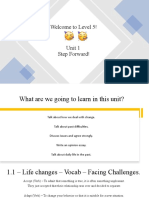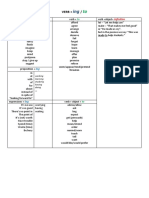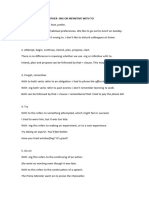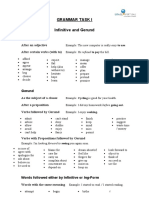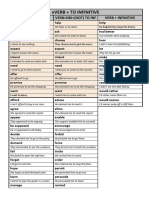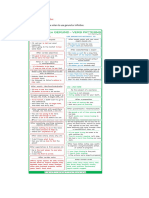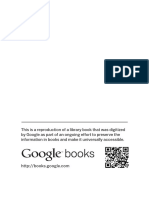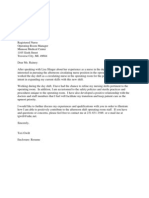0% found this document useful (0 votes)
52 views11 pagesVerb Patterns
The document outlines various verb patterns in English, focusing on the use of gerunds (-ing) and infinitives (to + verb). It provides examples of verbs that require specific patterns, such as 'enjoy' followed by -ing or 'want' followed by to + verb. Additionally, it explains the differences in meaning between similar constructions, such as 'forget to' versus 'forget -ing' and 'try to' versus 'try -ing'.
Uploaded by
MariaCopyright
© © All Rights Reserved
We take content rights seriously. If you suspect this is your content, claim it here.
Available Formats
Download as DOCX, PDF, TXT or read online on Scribd
0% found this document useful (0 votes)
52 views11 pagesVerb Patterns
The document outlines various verb patterns in English, focusing on the use of gerunds (-ing) and infinitives (to + verb). It provides examples of verbs that require specific patterns, such as 'enjoy' followed by -ing or 'want' followed by to + verb. Additionally, it explains the differences in meaning between similar constructions, such as 'forget to' versus 'forget -ing' and 'try to' versus 'try -ing'.
Uploaded by
MariaCopyright
© © All Rights Reserved
We take content rights seriously. If you suspect this is your content, claim it here.
Available Formats
Download as DOCX, PDF, TXT or read online on Scribd
/ 11




